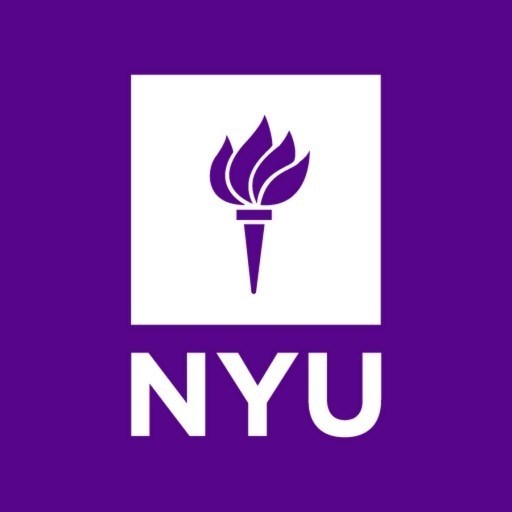Photos of university / #nyuniversity
Surfactant science and technology is a very important area in commercial/industrial practice, and this new MS program is the only one available. Surfactant systems at the air/water, water/oil, or water/solid interfaces are rarely taught, while they are critical for the coating, pharmaceutical, food and cosmetic industries.
Interfaces are ubiquitous in nature, and solutions to almost all technological and medical problems require understanding and controlling interfacial structure and interactions at the molecular level. The field of interface science and engineering is highly interdisciplinary and encompasses diverse areas of activities from studies of the fundamental properties of interfaces, to the development of new medical procedure and of new materials with unique properties for myriad applications.
Students are introduced to a rich tapestry of surfaces and interfaces, with an emphasis on highly interdisciplinary projects, which are critical for developing future scientists/engineers. Surfaces range from those of polymer to those of metals, metal oxides and semiconductors. Engineered interfaces span a range of length scales, from nanoscopic (using nanolithography) to macroscopic, from random distribution of functional groups to a gradient in their concentrations.
You may select a thesis option, where you will work on a research project that is summarized in a thesis, or a project option, in which you will take an aspect of surface engineering in an area that has been previously researched and propose an industrial application using knowledge acquired in the program.
As a candidate for the MS in Translational Surface Engineering, you should plan your program in accordance with list of requirements below. Thirty-four credits are required to complete the program.
Core Courses:
- 3 CreditsApplied Mathematics in Engineering CBE-GY 6153
- CBE-GY 7043 (Please refer to the bulletin)
- CBE-GY 6413 (Please refer to the bulletin)
- 3 CreditsTransport Phenomena CBE-GY 6333
- CBE-GY 6412 (Please refer to the bulletin)
Seminars:
- CBE-GY 9711
- CBE-GY 9721
Electives
All students can select from electives, as long as they select engineering courses to satisfy the minimum of 24 engineering credits.
Science/Engineering Courses:
- CBE-GY 7433
- CBE-GY 7413
- 3 CreditsComposite Materials ME-GY 5243
- CBE-GY 7423
- CBE-GY 7443
- CBE-GY 7453
- CBE-GY 9463
Management/Finance Courses
- 3 CreditsProject Management MG-GY 8203
- 3 CreditsEconomics MG-GY 6083
- 3 CreditsManaging Technological Change & Innovation MG-GY 8653
- 3 CreditsManging Intellectual Property & Intellectual Capital MG-GY 7873
Thesis/Project Options:
- CBE-GY 9973
- CBE-GY 9023
Requirements
- Applicants to the master’s program should have a BS or a more advanced degree in Chemical Engineering, Mechanical Engineering, Physics, Physical Chemistry, or Bioengineering with a minimum GPA of 3.5
- You should also have 12 or more credits of math, two semesters of organic chemistry and at least one semester of physical chemistry.
- Application (online only)
- Application Fee of $75 (payable by major credit card only)
- Statement of Purpose / Personal Statement
- Résumé / Curriculum Vitae
- Two Letters of Recommendation
- One official transcript from each institution attended or attending
- GRE / GMAT
- English Language Proficiency Testing
- International students who will require a J-1 or F-1 visa to study at NYU will need to apply for a new I-20 or transfer by submitting financial documentation after admission. Do not submit financial documents (including bank statements and affidavits of support) with your application. Instructions for applying for a new I-20 or transfer will follow your letter of admission (if applicable).
Scholarships
- Merit Scholarships
- Global Education
- International Student Loans
- Federal Work-Study and Student Employment
Translational Surface Engineering at New York University is a specialized program designed to equip students with advanced knowledge and practical skills in the field of surface engineering, with a focus on translational approaches that bridge fundamental research and industrial applications. The program aims to prepare graduates for careers in research, development, and innovation within industries such as aerospace, automotive, biomedical, and electronics, where surface modifications and treatments play a critical role in enhancing material performance, durability, and functionality. The curriculum encompasses a broad range of topics, including materials science, surface characterization techniques, coating technologies, tribology, corrosion prevention, and nanotechnology. Students engage in both coursework and hands-on laboratory experiments to gain a comprehensive understanding of surface engineering principles and their real-world applications. The program also emphasizes interdisciplinary collaboration, encouraging students to work alongside researchers and industry professionals to develop solutions for current technological challenges. Graduates of the program are well-equipped to pursue advanced research or professional roles in sectors that require expertise in surface modification strategies, quality control, and innovative material design. NYU's state-of-the-art laboratories and research facilities provide an ideal environment for experiential learning and innovation. The program often involves collaborations with leading industry partners and may include internships or research projects that foster practical experience and professional networking. Graduates leave the program with a strong foundation in scientific principles, technical skills, and an understanding of the translational process necessary to convert research findings into commercially viable products. Overall, the Translational Surface Engineering program at NYU exemplifies a blend of academic rigor and practical relevance, preparing students for successful careers in a rapidly advancing technological landscape.









